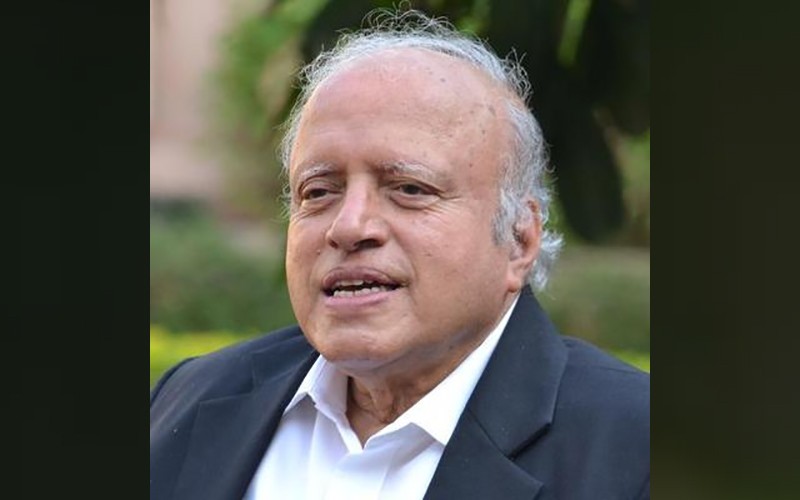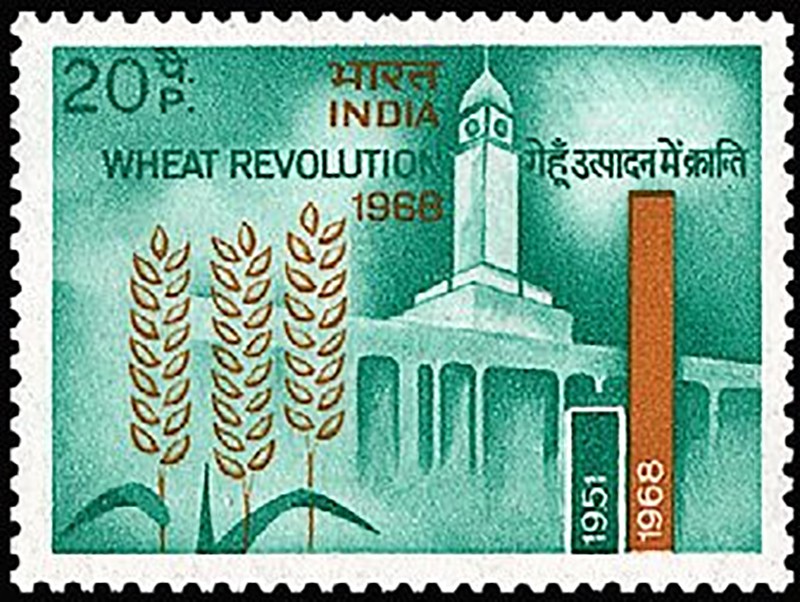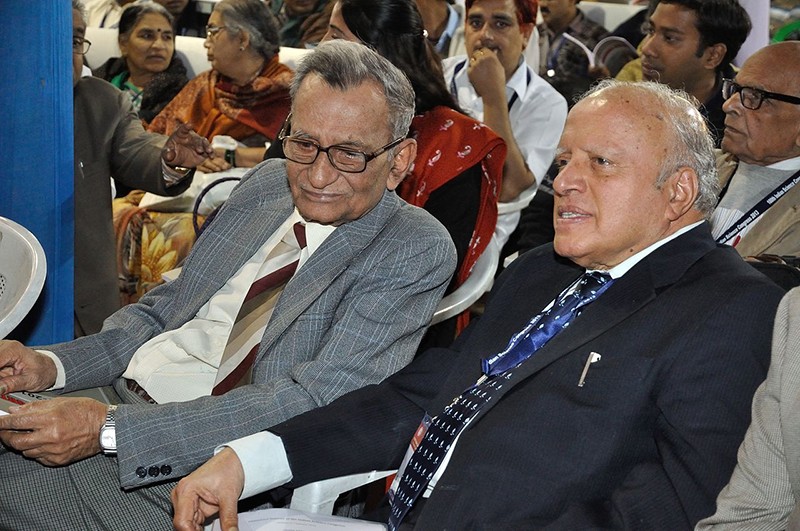 MS Swaminathan
Image Credit: twitter.com/msswaminathan
MS Swaminathan
Image Credit: twitter.com/msswaminathan
Father of India's Green Revolution, MS Swaminathan, dies at 98; PM Modi mourns
New Delhi: Eminent Indian agricultural scientist M.S. Swaminathan, who played a pivotal role in India's Green Revolution, passed away on Thursday at the age of 98.
Hailed as the "Father of Economic Ecology" by the United Nations Environment Programme, Swaminathan's trailblazing contributions in the 1960s and 1970s brought about a revolution in Indian agriculture.
This transformation averted widespread famine and led India to attain self-sufficiency in food production.
 A commemorative postage stamp India released on 17 July 1968 marking the 'Wheat Revolution'
A commemorative postage stamp India released on 17 July 1968 marking the 'Wheat Revolution'
Swaminathan's pioneering initiatives included the development and introduction of high-yield varieties of wheat and rice, leading to a substantial increase in food grain production throughout India.
Prime Minister Narendra Modi expressed deep sorrow at his demise. While mourning his passing, Modi acknowledged that during a crucial juncture in the nation’s history, Swaminathan's groundbreaking work in agriculture positively impacted the lives of millions and guaranteed food security for our nation.
On social media platform X, Modi wrote: "Beyond his revolutionary contributions to agriculture, Dr. Swaminathan was a powerhouse of innovation and a nurturing mentor to many. His unwavering commitment to research and mentorship has left an indelible mark on countless scientists and innovators."
Deeply saddened by the demise of Dr. MS Swaminathan Ji. At a very critical period in our nation’s history, his groundbreaking work in agriculture transformed the lives of millions and ensured food security for our nation. pic.twitter.com/BjLxHtAjC4
— Narendra Modi (@narendramodi) September 28, 2023
His innovative approach to agriculture, which fused modern scientific techniques with a profound understanding of local conditions and requirements, not only uplifted the lives of numerous low-income farmers but also played a significant role in the nation's economic advancement.
In recognition of his monumental contributions, Swaminathan was honoured with the inaugural World Food Prize in 1987.
 Swaminathan (right) with A. K. Sharma (left), considered as the father of Indian cytology, in 2013 at the 100th Indian Science Congress.
Swaminathan (right) with A. K. Sharma (left), considered as the father of Indian cytology, in 2013 at the 100th Indian Science Congress.
He used the prize funds to establish the MS Swaminathan Research Foundation in Chennai, underscoring his dedication to sustainable and inclusive agricultural practices.
Swaminathan was also awarded the Ramon Magsaysay Award in 1971 and the Albert Einstein World Science Award in 1986.
Beyond his significant contributions in India, Swaminathan wielded influence on the global stage, playing a crucial role in various international agricultural and environmental initiatives.
Time magazine acknowledged him as one of the 20 most influential Asians of the 20th century, underscoring his extensive influence.
Swaminathan is survived by his wife, Mina, and their three daughters: Soumya, Madhura, and Nitya.
With his passing, India bids farewell to a defining figure in its agricultural legacy, marking the end of an extraordinary era.
(Inside image courtesy: wikipedia.org)
Top Headlines
-
News
Ali Khamenei (19392026): Irans Supreme Leader who ruled with an iron grip
March 01, 2026
-
News
Ali Khamenei (19392026): Irans Supreme Leader who ruled with an iron grip
March 01, 2026
-
News
Ayatollah Ali Khamenei killed in US-Israeli Air Strikes; Irans Revolutionary Guards vow sweeping retaliation
March 01, 2026
-
News
PM Modi expresses displeasure over NCERT judiciary chapter, wants accountability fixed
February 26, 2026
-
News
Former New Zealand PM Jacinda Ardern to relocate to Australia amid growing Kiwi exodus
February 26, 2026
-
News
Major aviation boost for Kashmir: Cabinet clears development of a new Civil Enclave at Srinagar International Airport
February 24, 2026
-
News
India urges all nationals to leave Iran 'by available means' as US-Iran tension grows
February 23, 2026
-
News
Ind.AI: Sovereignty, jobs, energy and the What If?
February 20, 2026
-
News
From car diplomacy to global strategy: Modi, Macron upgrade IndiaFrance ties
February 17, 2026
-
News
Seva Teerth: PM Modi inaugurates new PMO, announces these key decisions on first day
February 13, 2026





